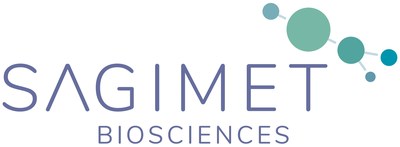Sagimet Biosciences Inc., announced today that Gastroenterology – the official journal of the American Gastroenterological Association – published results from the company’s FASCINATE-1 Phase 2a clinical trial evaluating TVB-2640 in patients with non-alcoholic steatohepatitis (NASH).
|
SAN MATEO, Calif., July 26, 2021 /PRNewswire/ -- Sagimet Biosciences Inc., a clinical-stage biotechnology company focused on developing a portfolio of internally-discovered, selective fatty acid synthase (FASN) inhibitors, announced today that Gastroenterology – the official journal of the American Gastroenterological Association – published results from the company's FASCINATE-1 Phase 2a clinical trial evaluating TVB-2640 in patients with non-alcoholic steatohepatitis (NASH). George Kemble, PhD, Sagimet's chief executive officer, said, "The results from our FASCINATE-1 Phase 2a trial published in this prestigious peer-reviewed journal are very encouraging. The significant improvement across steatosis, inflammation, lipotoxicity, fibrosis and metabolic biomarkers after only 12 weeks of TVB-2640 treatment brings hope that we are getting closer to a potential therapy for patients with NASH." The primary efficacy endpoint of overall change in liver fat by MRI-PDFF imaging of TVB-2640 treatment resulted in significant reductions of liver fat in a dose dependent manner over the 12 weeks of treatment: 9·6%±29·1% (P=0·053) decrease in the 25mg cohort and 28·1%±28·0% (P=0·001) decrease in the 50mg cohort versus 4·5%±35·9% increase with placebo. 11% of patients in the placebo group achieved a ≥30% relative reduction of liver fat compared to 23% in the 25mg group, and 61% in the 50mg group (P<0·001). NASH patients who achieved an MRI-PDFF response, relative reduction of ≥30% liver fat, after 12-24 weeks of treatment have been shown later to have improved liver histology upon repeat liver biopsy, and this response has emerged as a strong and important indicator of NASH histologic improvement. TVB-2640 also elicited a rapid impact on de novo lipogenesis (DNL), hepatic fat, blood levels of pro-inflammatory/pro-fibrotic lipotoxic metabolites and markers of fibrogenesis, indicating the mechanism of action of this drug across multiple pathologic pathways. In contrast, the placebo population showed increases in liver fat, liver enzymes, liver cell injury, and cholesterol levels over the 12 weeks. Future studies will determine if a longer duration of treatment will result in an even greater response. Rohit Loomba, MD, MHSc, University of California at San Diego, who is serving as coordinating principal investigator of the study, noted, "It is imperative that therapies either regress fibrosis or blunt the progression of it. Our data indicate TVB-2640's potential is two-fold: first, it reduces lipotoxic liver injury that drives fibrosis-inducing damage; and second, it has a direct effect on inflammatory stimuli and stellate cells in the liver. The positive results based on the 12-week study provide a compelling foundation for larger randomized clinical trials with histological endpoints. We are excited to continue the path towards finding a treatment for NASH patients, including the near-term initiation of the Phase 2b FASCINATE-2 trial." About TVB-2640 About Sagimet
SOURCE Sagimet Biosciences |





